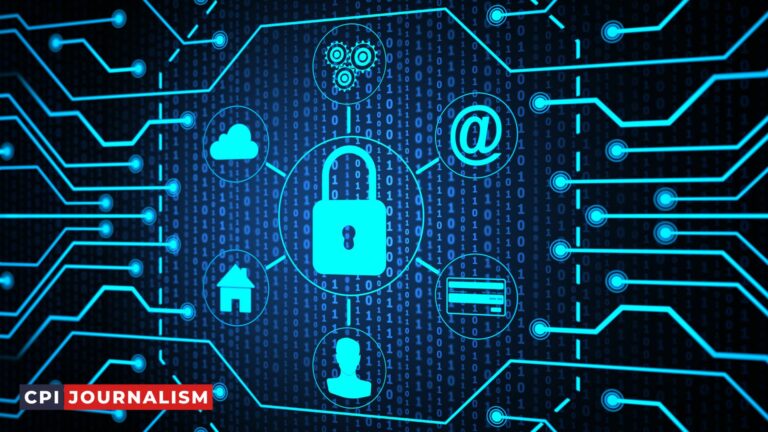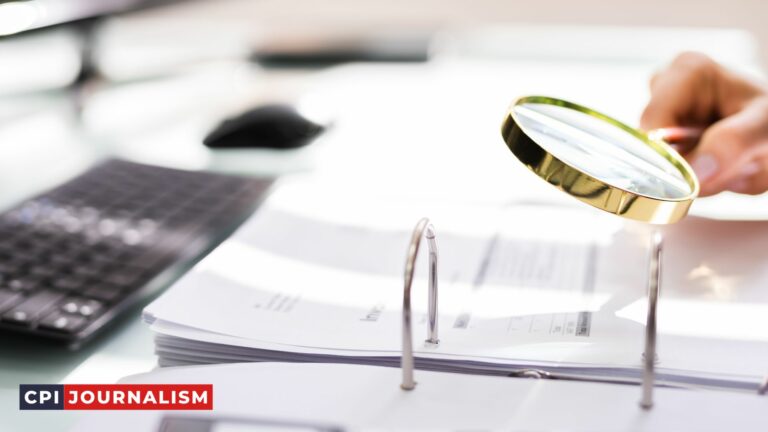What Are the Best Practices for Protecting Digital Security and Privacy in Investigative Journalism?
As an experienced journalist, I understand how important it is to protect digital security and privacy when conducting investigative journalism. With the rise of technology, the need to protect ourselves as journalists has become even more pressing.
Therefore, I want to share my wisdom, experience, and expertise on the best practices for protecting digital security and privacy when conducting investigative journalism.
In this article, I will discuss the different methods for safeguarding your digital security and privacy, and how to go about properly implementing them. I hope that this article will help upcoming journalists stay safe and secure in their work.
A. Overview of Digital Security and Privacy
Digital security and privacy are essential components of investigative journalism. Not only do they protect journalists from the risks of revealing sensitive information and sources, but they also protect the readers from the potential misuse of their data.
This section provides an overview of digital security and privacy and the best practices that journalists should follow to ensure the safety of their investigations.
First and foremost, it is important to understand the scope of digital security and privacy. Digital security and privacy refer to the measures taken to protect data and information from unauthorized access or manipulation.
This includes secure data storage, secure communication, authentication, and encryption. Data authentication is the process of verifying the source of data and ensuring that it is accurate and secure.
Encryption is the process of transforming data and information into an encoded form that is difficult to access or decode.
In addition to understanding the scope of digital security and privacy, journalists should also be aware of the risks associated with investigative journalism.
These risks include the potential for data breaches, malicious attacks, and the misuse of confidential sources. It is important for journalists to take measures to protect their data and sources from these risks.
To ensure the safety of their investigations, journalists should follow best practices for digital security and privacy. These include the use of secure data storage, secure communication, authentication, and encryption.
Additionally, journalists should use secure passwords and two-factor authentication, avoid using public Wi-Fi networks, and keep their devices and software up-to-date.
By following these best practices, journalists can protect their data and sources and ensure the safety of their investigations.
Best Practices For Protecting Digital Security And Privacy In Investigative Journalism
Investigative journalism is an important tool for uncovering important truths and holding powerful people and organizations to account.
However, the nature of investigative journalism means that journalists are often exposed to a range of risks, including digital security and privacy threats.
In order to protect themselves and their sources, investigative journalists must take steps to ensure their digital security and privacy.
Here are some best practices that investigative journalists should follow:
1. Use Encrypted Communications: Whenever possible, investigative journalists should use encrypted communication methods, such as secure messaging services and encrypted email. This will help to ensure that sensitive information is kept safe from prying eyes.
2. Secure Data Storage: Investigative journalists should also make sure that they are using secure data storage solutions. This could include using an external hard drive or cloud storage service that offers encryption and two-factor authentication.
3. Use a VPN: Journalists should use a virtual private network (VPN) when working online in order to help protect their online activities from being monitored or tracked.
4. Use Anonymity Tools: Investigative journalists should also consider using anonymity tools, such as Tor, to help protect their identity and location when working online.
5. Maintain Good OpSec: Good operational security (or “OpSec”) is essential for investigative journalists. This means that they should always practice good digital hygiene, such as avoiding reusing passwords and using two-factor authentication whenever possible.
6. Stay Educated: Investigative journalists should stay up to date with the latest security and privacy best practices and threats. This can help them to stay one step ahead of those who might seek to compromise their digital security and privacy.
By following these best practices, investigative journalists can better protect themselves, their sources, and the stories they write.
A. Use Encryption
As an investigative journalist, it is essential to use encryption to protect digital security and privacy. Encryption helps keep documents, files, and other sensitive information secure and private, as only those with the access code or key can open and view the encrypted files.
There are a variety of encryption methods available, such as symmetric encryption, asymmetric encryption, and public-key cryptography. To ensure digital security and privacy, it is important to use an encryption system that is secure, reliable, and easy to use.
When it comes to encryption, there are a few key points to keep in mind. Firstly, strong encryption algorithms should be selected, such as AES-256 or RSA-2048. Secondly, use a secure password and never share it with anyone. Lastly, use a secure encryption key and store it in a safe place.
In addition to using encryption, other security measures can be taken to protect digital security and privacy. These include using a Virtual Private Network (VPN) to mask IP addresses, using two-factor authentication, and using a password manager to store passwords securely.
By using these measures, investigative journalists can ensure that their digital security and privacy are protected.
1. Encrypting Data
Data encryption is one of the most important best practices for protecting digital security and privacy in investigative journalism. Encryption allows you to turn your data into a code that only authorized people can access.
This means that, even if someone obtains your data, they cannot read it without the encryption key.
There are several different types of encryption that you can use in investigative journalism. Symmetric encryption involves a single key that is used to both encrypt and decrypt the data,

while asymmetric encryption uses two different keys to encrypt and decrypt the data. Whichever type of encryption you choose, it is important to keep the encryption keys secure and not share them with anyone who is not authorized to access the data.
It is also important to use strong encryption. Weak encryption can be easily broken, which leaves your data vulnerable.
When choosing an encryption algorithm, look for one that is well-vetted and has stood the test of time. This can help ensure that your data is secure.
Finally, it is also important to regularly review your encryption methods. As encryption techniques and algorithms evolve, it is important to stay up-to-date on the best practices for encryption. Make sure to periodically review your encryption methods and update them when necessary.
2. Encrypting Communications
One of the best practices for protecting digital security and privacy in investigative journalism is to encrypt communications.
It is essential for journalists to take steps to protect their communication from being intercepted. Encryption is a powerful tool for ensuring that sensitive information remains confidential.
Encryption involves using an algorithm to turn plain text data into an unreadable form. This ensures that only the person or persons with the correct key can view the data.
It is especially important for journalists to encrypt communications when dealing with sensitive sources. Encryption should also be used when sending emails, text messages, and other forms of electronic communication.
There are several methods of encryption available to journalists. One option is to use a virtual private network (VPN).
A VPN provides an encrypted connection between two computers, allowing for secure communication between them. It also hides the computers’ IP addresses, making it difficult for third parties to track their activity.
Another option is to make use of an encrypted messaging app. Encrypted messaging apps are designed to ensure that communications are kept private and secure. They provide end-to-end encryption, which means that only the sender and receiver can view the messages.
Finally, journalists may wish to consider using an encrypted email service. These services provide an extra layer of security to protect emails from being accessed by third parties.
Encrypting communications is an essential part of protecting digital security and privacy in investigative journalism.
It is important for journalists to take steps to ensure that their communications are kept secure and confidential. By making use of encryption, they can ensure that their sources and information remain safe.
B. Use Anonymity
Anonymity is a key tool in the digital security and privacy toolbox for investigative journalists. While anonymity may not be a viable option in all circumstances, there are certain situations where using it can be beneficial.
When using anonymity, journalists need to consider the following:
• Is it necessary? In some cases, it may be beneficial to reveal your identity as it can lend authenticity and credibility to your reporting.
• Is it possible? It is important to know what the legal and technical implications are when anonymizing your presence online.
• Is it effective? Can the anonymity you are using to protect yourself be easily broken?
Anonymity can be achieved through a variety of methods, such as using a pseudonym, a VPN, and Tor. In addition, journalists should use strong passwords and two-factor authentication when possible.
As well, utilizing secure messaging apps, such as Signal and WhatsApp, can add an extra layer of security. Furthermore, journalists can utilize encryption tools to protect files and documents.
Ultimately, it is important to consider the risks and rewards of anonymity before using it. While anonymity can be an effective tool in protecting digital security and privacy, it is important to know the limits of the methods you are using.
1. Use Anonymizing Software
Anonymizing software is a valuable tool for investigative journalists, as it helps to protect your digital security and privacy while researching sensitive topics.
By using anonymizing software, you can conceal your IP address, making it difficult for others to track your online activity or location. There are many anonymizing software programs available, such as Tor, which is free and open-source, or a free VPN service.
Anonymizing software also allows you to access content that may be censored in your region or otherwise blocked due to political or regional restrictions.
By changing your IP address, you can access websites and other content that would otherwise be inaccessible to you. This is especially useful when researching topics that may be considered controversial or sensitive by certain governments or organizations.
When using anonymizing software, it is important to remember that it does not guarantee your privacy or security. In order to ensure your safety, you should also use additional security measures such as two-factor authentication and a secure password manager.
Additionally, you should be aware of the potential risks associated with using anonymizing software, such as the possibility of your real IP address being exposed if the service is compromised.
2. Use A Virtual Private Network (VPN)
Using a VPN is one of the most important steps that investigative journalists can take to ensure the security and privacy of their digital communications.
A VPN is a secure tunnel that connects your device to the internet via an encrypted connection. This means that all of your data and communications are kept private and secure from unauthorized access.
A VPN also allows you to access websites and servers that may otherwise be blocked due to geographic or governmental restrictions. This is particularly useful for investigative journalists who may need to access content from sources in different countries.
When choosing a VPN, it is important to select one that is reliable, secure, and has good privacy policies. It is also important to choose a VPN that does not keep logs of your activity, as these logs can be used to identify and track you.
Finally, it is important to remember that even when using a VPN, it is still possible for your data to be intercepted and monitored. Therefore, it is important to be aware of the risks and to take additional steps to secure your data and communications.
This includes using strong passwords and two-factor authentication, as well as using encrypted messaging services such as Signal or Telegram.
3. Use Tor Browser
One of the best practices for protecting digital security and privacy in investigative journalism is to use the Tor Browser. The Tor Browser is a free and open source internet browser designed to protect users’ privacy and security.
It routes internet traffic through a network of volunteer-run servers that conceal a user’s location and identity. This prevents websites from tracking a user’s browsing habits and the websites a user visits from being linked to their IP address.
Additionally, Tor Browser encrypts the data that is sent and received, making it more difficult for a hacker to gain access to a user’s sensitive information.
Overall, using Tor Browser is an important best practice for protecting digital security and privacy in investigative journalism. It allows journalists to research, report, and share information securely while protecting their digital identities.
Additionally, it can help reporters stay safe and secure while communicating with confidential sources. For these reasons, it is essential that investigative journalists use the Tor Browser when conducting their work.
C. Use Secure Storage
As an investigative journalist, it is important to ensure that any sensitive data collected or stored is kept safe and secure.
Secure storage of data is key in protecting your digital security and privacy.
There are a few steps that you can take to ensure that your data is stored securely:
1. Use a reliable and secure cloud storage provider: When storing data online, it is important to use a cloud storage provider that is reliable and secure. Make sure to read up on the provider’s security features and ensure that they comply with the necessary regulations and data protection laws.
2. Use encryption software: Data encryption is a great way to ensure that your data is secure and protected from malicious actors. Encryption scrambles the data, making it unreadable to anyone who does not have the encryption key.
3. Store data on external hardware: External hardware such as external hard drives, USB drives, and SD cards are all great ways to store data securely and off-site. Make sure to encrypt the data and use a secure password to protect the data.
4. Backup and store data in multiple locations: To further protect your data, make sure to backup the data and store it in multiple locations. This ensures that if one location is compromised, you have multiple backups of the data and can restore it quickly and easily.
By following these steps and taking the necessary precautions to secure your data, you can be sure that your digital security and privacy are protected.
1. Use Cloud Storage
Investigative journalism requires journalists to work with sensitive data, often requiring the storage and transfer of this data to other sources.
To ensure digital security and privacy, journalists should take advantage of cloud storage services. Cloud storage services, such as Google Drive and Dropbox, are secure, reliable and easy to use.
When working with sensitive data, it is important to encrypt the data before it is uploaded to a cloud storage service.
This can be done by using a secure external drive that encrypts the data as it is being written. Additionally, it is important to keep the cloud storage account password secure. Journalists should use strong passwords and enable two-factor authentication if available.

When accessing the data, journalists should use a secure connection, such as a Virtual Private Network (VPN).
VPNs hide the user’s IP address, encrypt the data being sent, and provide an added layer of security. This is especially important if the data is being transferred to another source, such as a newsroom.
Finally, journalists should be aware of the policies of the cloud storage service they use. Many cloud storage services have policies that allow them to access and share user data with third parties.
It is important to understand the policies of the service to ensure that the data does not fall into the wrong hands.
2. Use Encrypted Hard Drives
One of the best practices for protecting digital security and privacy in investigative journalism is the use of encrypted hard drives. Encryption is the process of encoding data so that it can only be accessed by authorized individuals.
By encrypting the files on your hard drive, you can ensure that no one else can access them without your permission.
Encryption is especially important when dealing with sensitive information related to investigative journalism. Without encryption, anyone with physical access to your hard drive could potentially gain access to your confidential documents.
Encrypting your hard drive helps to ensure that your information is kept safe, even if your computer is stolen or lost.
When it comes to encryption, the most commonly used protocol is the Advanced Encryption Standard (AES). The AES standard is a symmetric-key algorithm that uses a 256-bit key to encrypt and decrypt data.
This means that the same key is used to encrypt and decrypt the data, which makes it difficult for an attacker to gain access to the data.
There are several tools available for encrypting your hard drive, such as VeraCrypt, TrueCrypt, and BitLocker. All of these tools are free and easy to use, so you can quickly and securely encrypt your hard drive.
It is important to remember to back up your data regularly, as encryption does not protect against physical damage to the hard drive.
In conclusion, using an encrypted hard drive is one of the best practices for protecting digital security and privacy in investigative journalism. Encryption can help to ensure that your sensitive data remains secure, even if your computer is stolen or lost.
There are several tools available for encrypting your hard drive, so you can quickly and securely protect your data.
3. Use Password Managers
In this digital age, it’s more important than ever for investigative journalists to take the necessary steps to protect their digital security and privacy.
One of the best ways to do this is to use a password manager. A password manager is a tool that stores all of your passwords in an encrypted and secure database.
Using a password manager will help you keep track of all of your passwords in one place and make it easier to access them when needed. It also ensures that your passwords are stored securely and that they are not shared with anyone else.
Additionally, it allows you to implement stronger password policies, such as using unique passwords for each account and using long, complex passwords that are difficult to guess.
Furthermore, many password managers also offer additional features, such as two-factor authentication, which adds an extra layer of security.
Additionally, some password managers offer the ability to share passwords with other users securely, which can be useful for investigative journalists who are working together on a story or need to share confidential information.
All in all, using a password manager is an easy and effective way to protect your digital security and privacy and ensure that your passwords are secure.
D. Use Secure Communication
Secure communication is essential for investigative journalism. Journalists must ensure that all communication, both digital and physical, is conducted with the utmost security.
This includes using secure messaging systems and encrypting emails, phones, data, and other forms of communication.
Secure messaging systems allow for private conversations between two or more people that are not visible to anyone else.
The most secure messaging systems use end-to-end encryption, which ensures that the messages remain encrypted even if they are intercepted by third parties. Encrypted emails should also be used to protect the content of emails from being accessed.
In addition, journalists should make sure to use a Virtual Private Network (VPN) when communicating online. A VPN allows a user to access the internet through an encrypted tunnel, making it harder for an attacker to intercept and read the data.

Journalists should also be aware of social engineering attacks, which are attempts to gain access to sensitive information by taking advantage of people’s trust.
Social engineering attacks can include phishing emails, which are emails sent by attackers pretending to be legitimate organizations in order to gain access to sensitive data.
Journalists should be aware of these attacks and take steps to protect themselves.
Finally, journalists should be aware of their physical security. Always be aware of your surroundings and use secure methods of transport when travelling with sensitive information.
Carry a secure device, such as a mobile phone, laptop, or tablet, that is not connected to the internet or any other network.
Secure communication is essential for investigative journalism. By taking the necessary steps to secure their communication, journalists can protect their sources and the information they have collected.
1. Use Secure Messaging Apps
When engaging in digital security and privacy for investigative journalism, it is imperative to use secure messaging apps. These apps are designed to prevent unauthorized access to the conversations and data being shared.
There are many secure messaging apps available, but some of the most popular include Signal, Wickr, and WhatsApp.
Signal is a free app that provides end-to-end encryption for all messages sent, meaning that the messages are only visible to the sender and recipient.
Wickr is also a free app that offers end-to-end encryption, but it also provides extra security measures like ephemeral messaging, which erases messages after a set time period.
WhatsApp is a popular messaging app that offers end-to-end encryption with the added benefit of being able to make calls and share documents.
When using secure messaging apps, it is important to be aware of the security settings and to set up a secure password. It is also important to be aware of the app’s privacy policy and to make sure that the app is updated regularly.
Additionally, it is important to only use secure messaging apps on secure devices that have been updated with the latest security patches.
By taking the necessary precautions and utilizing secure messaging apps, journalists can ensure that their communications are kept private and secure.
2. Use Secure Email Services
For investigative journalists, the use of secure email services is an essential best practice for protecting digital security and privacy.
The majority of the major email providers such as Yahoo, Gmail, and Hotmail are not encrypted, meaning that email messages sent through these services can be read by anyone who has access to the servers.
This could potentially put sensitive information in the hands of criminals or even government agencies.
Secure email services use encryption to protect the privacy of the emails sent and received. This means that only the sender and the intended recipient can view the content of the message.
Additionally, secure email services often have additional security features such as two-factor authentication, which adds an extra layer of protection against hackers.
Another important feature of secure email services is that they are hosted on servers located in secure locations.
This means that the servers are not subject to the jurisdiction of any particular country, making it much more difficult for law enforcement agencies to access the content of the emails.
Finally, secure email services often provide additional features such as end-to-end encryption and the ability to send self-destructing messages.
These features can help protect journalistic sources and make sure that sensitive information is not leaked or exposed.
Investigative journalists should take the time to familiarize themselves with the features and security protocols of secure email services and make sure that they are using one that meets their needs. This is an essential best practice for protecting digital security and privacy in investigative journalism.
3. Use Secure Voice And Video Calls
In investigative journalism, journalists often need to interact with sources, witnesses, and other people in order to obtain information. To ensure privacy and security while doing so, it is important to use secure voice and video calls.
Using encrypted messaging services such as Signal and WhatsApp allows you to communicate securely with people while retaining a certain level of privacy.
These encrypted messaging services can also be used for voice and video calls, ensuring that all communication remains secure.

In addition to using encrypted messaging services, it is important to use a Virtual Private Network (VPN) when making voice and video calls. A VPN encrypts all of your internet traffic, making it difficult for anyone to track or monitor your online activity.
This will help to protect your digital security and privacy while making calls to sources and other people.
Finally, it is important to be aware of the security of the devices you are using to make calls. Make sure that your computer and smartphone are up to date with the latest security patches and that you are using a password manager to store your passwords.
This will help to protect your devices against malicious software, which could be used to monitor your activity or steal sensitive information.
By following these simple steps, you can ensure that your voice and video calls remain secure and your digital security and privacy is protected.
Conclusion
Investigative journalism is an important tool in the fight for truth and justice. In order to do it effectively, it is essential to understand and practice the best practices for protecting digital security and privacy.
This includes securing devices, networks, and data, encrypting communications, and taking additional steps to protect sensitive information.
By following the best practices for digital security and privacy, investigative journalists can protect themselves and their sources, ensuring that their work remains safe and secure.
This is essential for ensuring that the truth is exposed, and that justice is served. In the end, it is essential for investigative journalists to take the necessary steps to protect themselves and their sources from harm.
A. Summary Of Best Practices
As an experienced investigative journalist, I have developed a set of best practices to help protect digital security and privacy while conducting investigative journalism.
1. Utilize a secure computer: Use a separate computer to conduct your investigations that is not connected to your personal devices or accounts. Always enable disk encryption, use a strong password, and take other necessary steps to secure the device.
2. Adopt secure communication practices: Use encryption for all communication, including emails and messaging apps. Make sure to use secure web browsers and virtual private networks (VPNs) for any online activities.
3. Safeguard sensitive data: Be aware of what types of data you are collecting and store it in a secure manner. Use encryption to protect the data, and limit access to it.
4. Protect your online identity: Use secure online services that allow you to remain anonymous, such as Tor or ProtonMail. Do not use personal information or accounts when accessing websites or interacting online.
5. Practice digital hygiene: Use strong passwords, enable two-factor authentication where possible, and avoid public Wi-Fi. Make sure to keep your operating system and software up to date, and use an anti-malware program.
These best practices can help you protect your digital security and privacy while conducting investigative journalism. By following these steps, you can ensure that your investigations remain secure and protect your identity.
B. Importance of Digital Security and Privacy in Investigative Journalism
Investigative journalism is an essential tool in the pursuit of truth and justice. As journalists, it is our duty to bring to light the facts and uncover stories that are often hidden from the public eye.
To do this, we must protect the digital security and privacy of our sources. Without these protections, sources may be reluctant to share information with us, or even worse, be exposed to retaliation or legal action.
Digital security and privacy are especially important in investigative journalism. Information gathered in the course of an investigation may be sensitive or confidential.
If the information were to be exposed to unauthorized individuals, the security of the investigation, its sources, and the journalist would be compromised. Additionally, the journalist would be at risk of legal action if the information were obtained without the proper authorization.
The protection of digital security and privacy is also important to ensure the accuracy of the information being reported.
Without accurate information, the journalist’s credibility would be compromised and the reliability of the investigation would be called into question. As journalists, it is our responsibility to ensure that the information we report is both accurate and secure.
Finally, it is essential that digital security and privacy be maintained to protect the integrity of investigative journalism. Without these protections, journalists would be unable to pursue their stories and bring the truth to light.
This would ultimately have a negative impact on society, as the public would not be informed of important events and developments.
In conclusion, digital security and privacy are essential to the successful practice of investigative journalism. Without these protections, journalists would be unable to pursue their stories and bring the truth to light.
It is therefore essential that journalists take the necessary steps to ensure that their digital security and privacy are protected.







